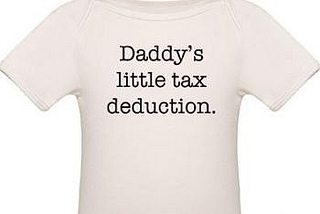
June 9, 2012; Source: The Economist
When The Economist starts to closely examine the justifications for a tax deduction for gifts to charity—whether in the U.S. or in the U.K.—the issue of the charitable deduction is no longer sacrosanct. President Obama’s proposal to cap the charitable deductions (and all other itemized deductions, such as the mortgage interest deduction) at 28 percent has gone absolutely nowhere, greeted with just about complete silence by members of his own party in Congress. In the U.K., Chancellor of the Exchequer George Osborne withdrew his proposal to limit tax relief for wealthy British taxpayers in the wake of vocal opposition from Tory backbenchers.
One might think that the issue is basically much ado about nothing, except that Independent Sector’s Diana Aviv told The Economist, “I’m expecting a big fight in Congress over charitable deductions and over the definition of charity. I’m very concerned.” Aviv also bemoaned the increasingly popular practice of local and state governments exacting taxes from tax-exempt property owners under the guise of “payments in lieu of taxes.”
It’s hard to imagine that the Conservative/Liberal coalition government of Prime Minister David Cameron is really populated by raving populists. The same is true for President Obama’s administration, which has maintained strong relationships with banking and other corporate executives, not to mention the stalwart corporate defense role played by Treasury Secretary Tim Geithner. However, it may be that tax subsidies that are basically the province of wealthy taxpayers are under attack as part of an international populist uprising against the top one percent. Tax subsidies for the charitable donations of the rich may not be immune, despite the lessons of the public beatdown that Osborne took from members of his own party.
Sign up for our free newsletters
Subscribe to NPQ's newsletters to have our top stories delivered directly to your inbox.
By signing up, you agree to our privacy policy and terms of use, and to receive messages from NPQ and our partners.
The Economist suggests that the cost of tax subsidies for donors to charity in the U.K. is about $5.5 billion in U.S. dollars. In the U.S., the tax deductions cost $39.6 billion in 2012, and that is expected to rise to $51.6 billion in 2014, according to the U.S. Treasury. Those are big but not unfathomable numbers (no match for, say, the cost of U.S. war efforts in Afghanistan and Iraq). Nonetheless, The Economist is the latest and perhaps most influential source raising questions about why government should subsidize the charitable giving of the wealthy, or, in its recounting of a similar British debate in the 1800s, “why should taxpayer B face a bigger tax bill because taxpayer A chooses to give to charity?”
The basic issues, articulated by The Economist and others, are these:
- Can charities show that the value of the benefits delivered by nonprofits exceeds the cost of the tax revenues forgone by government as a result of the tax deduction? The problem is that there are a huge number of types of charities that have greater or lesser degrees of societal value. How would this kind of calculation be done?
- Does the charitable deduction or some other tax incentive for charitable giving affect the willingness of taxpayers to give to charity or how much taxpayers are willing to give? Increasingly for the wealthy, the studies seem to indicate that tax subsidies affect the size and timing of specific grants, but not so much the willingness to give.
- Should lower income donors have to bear the costs of supporting social justice-oriented charities and simultaneously pay higher government taxes as a result of higher income taxpayers’ taking advantage of tax deductions? Despite protestations from American charity leaders, some charitable incentives (such as the IRA rollover) don’t do as much for charities serving the poor as they do for nonprofits, such as universities and museums, which tend to benefit upper income users.
- Given that British and American charities have major functions as deliverers of government programs, should tax deductions for charitable gifts be part of the revenue streams of nonprofits above and beyond what they get as federal, state, and local government contract payments?
- Unlike direct government funding, charitable giving to nonprofits is a sort of public-private partnership, with the eyes of donors large and small keeping track of the performance of the charities they support. Does charitable giving increase the accountability of nonprofits above what government-supported charities do to live up to their roles and mandates? Or do donors induce and support the kind of risk-taking and experimentation that governmental funding sources cannot and will not?
- “Hybrid” forms of organizations such as low profit limited liability corporations (L3Cs) and “B corporations” are making the case for the role of the for-profit sector in meeting and solving social problems. The Economist asks, “Is (there) a risk that subsidised charitable service-providers may be squeezing out innovative for-profit alternatives?”
- Does it make any sense to provide a deduction for charitable giving when as much as half of individual charitable giving goes to religious organizations? The Economist describes some of charitable giving to churches and synagogues as akin to a membership fee. Should the tax structure incentivize and subsidize the membership costs for joining exclusive religious clubs?
- Three-fourths of the value of charitable deductions goes to donors with more than $500,000 in annual income, though they account for slightly more than half of all charitable donations. Is it fair for all taxpayers to be subsidizing the charitable giving of the very rich?
- The Economist points out that there is a public benefit test for charities in the U.K. but much less stringent requirements for qualifying for 501(c)(3) status in the U.S. Others suggest that, at least in the past, to become a 501(c)(3) in the U.S. was a simple process with few hurdles. Simply because they share a tax status, are all charities equally deserving of equally valued charitable dollars?
The Economist concludes, “Most experts on charity reckon the status quo to be the least-bad option… It may offend some that people are as keen to give to donkey sanctuaries as to shelters for victims of domestic abuse. But, as Patrick Rooney of the University of Indiana asks: ‘Who has the wisdom to decide what is a good charity?’” But Stanford professor Rob Reich thinks it might be more appropriate to use the tax code to incentivize charitable giving to “the more useful sorts of charity, especially those focused on reducing poverty.”
Where do NPQ Newswire readers come out on these issues?—Rick Cohen












